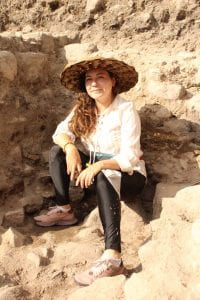
About the Author
Solsiré Cusicanqui is a Peruvian archaeologist and PhD candidate at Harvard University in the Anthropology Department. She has been working on the topic of ethnic identity, mobility, and public archaeology in the central Andes, focusing on the region of Cajamarca where she has directed archaeological projects the last 7 years.
Acerca del Autor
Solsiré Cusicanqui es arqueóloga peruana y candidata doctoral en el Departamento de Antropología de la Universidad de Harvard. Viene trabajando en temas sobre identidad étnica, movilidad y arqueología pública en los Andes centrales, enfocándose en la región de Cajamarca donde ha dirigido proyectos arqueológicos y patrimoniales los últimos siete años.
Planting Dreams
A School in the Andes
Photos by Francisco Vigo
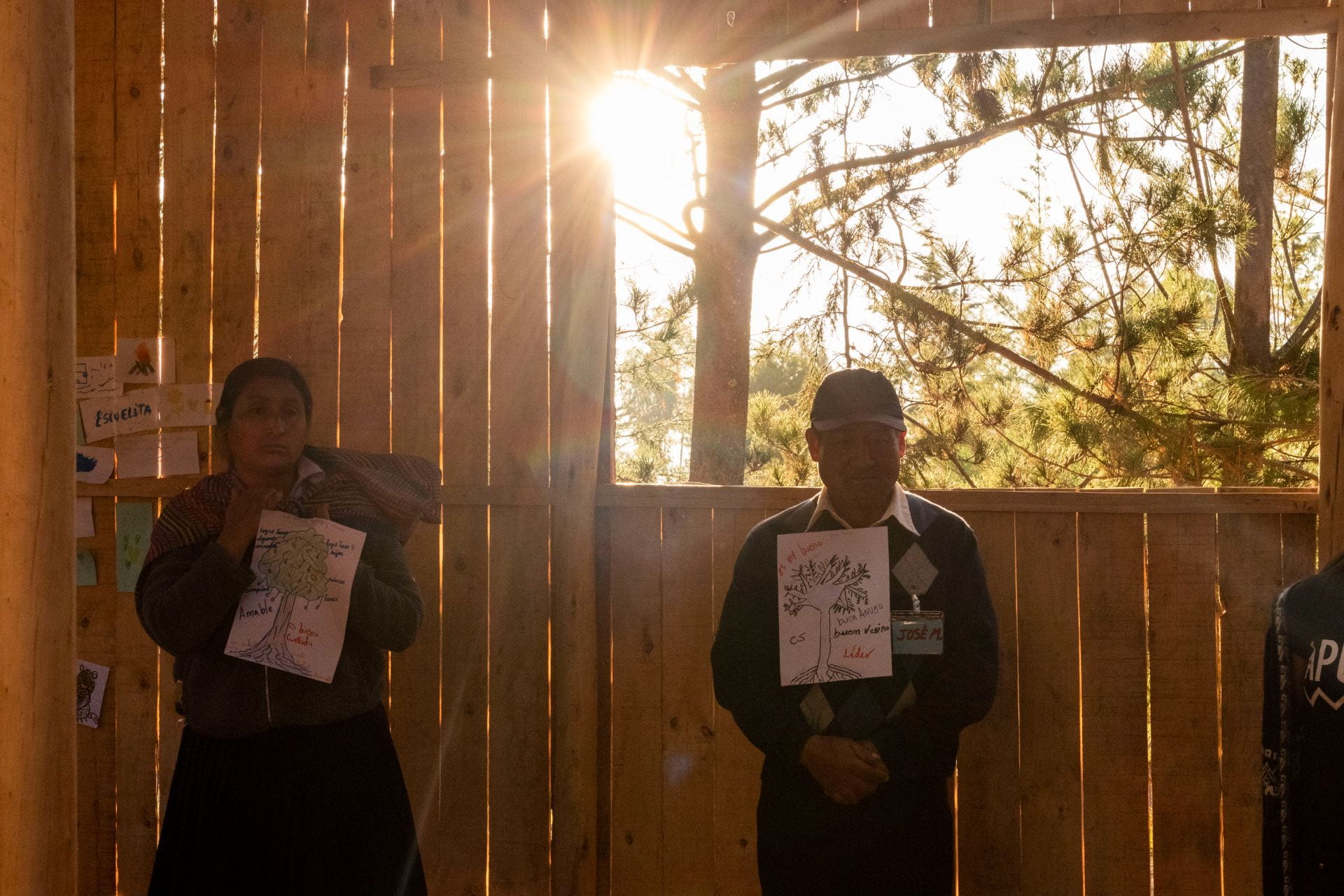
Uruguayan writer Eduardo Galeano once wrote, “Many little people, in small places, doing little things, can change the world.” A few days ago, I called my friend and retired teacher Elena Sánchez Cueva, who explained to me that now with the help that she receives from additional volunteers at the school she runs, she has some time to take care of the flowers in her garden. “I want them to look pretty to cheer up those who visit us.” She then happily told me that she was excited that every day more students arrive with their mothers. Likewise, more young volunteers come from the city of Cajamarca to support her, not only to teach classes and workshops, but also to clean the house, and to sing and dance to the sound of the songs of the Cajamarca carnivals.
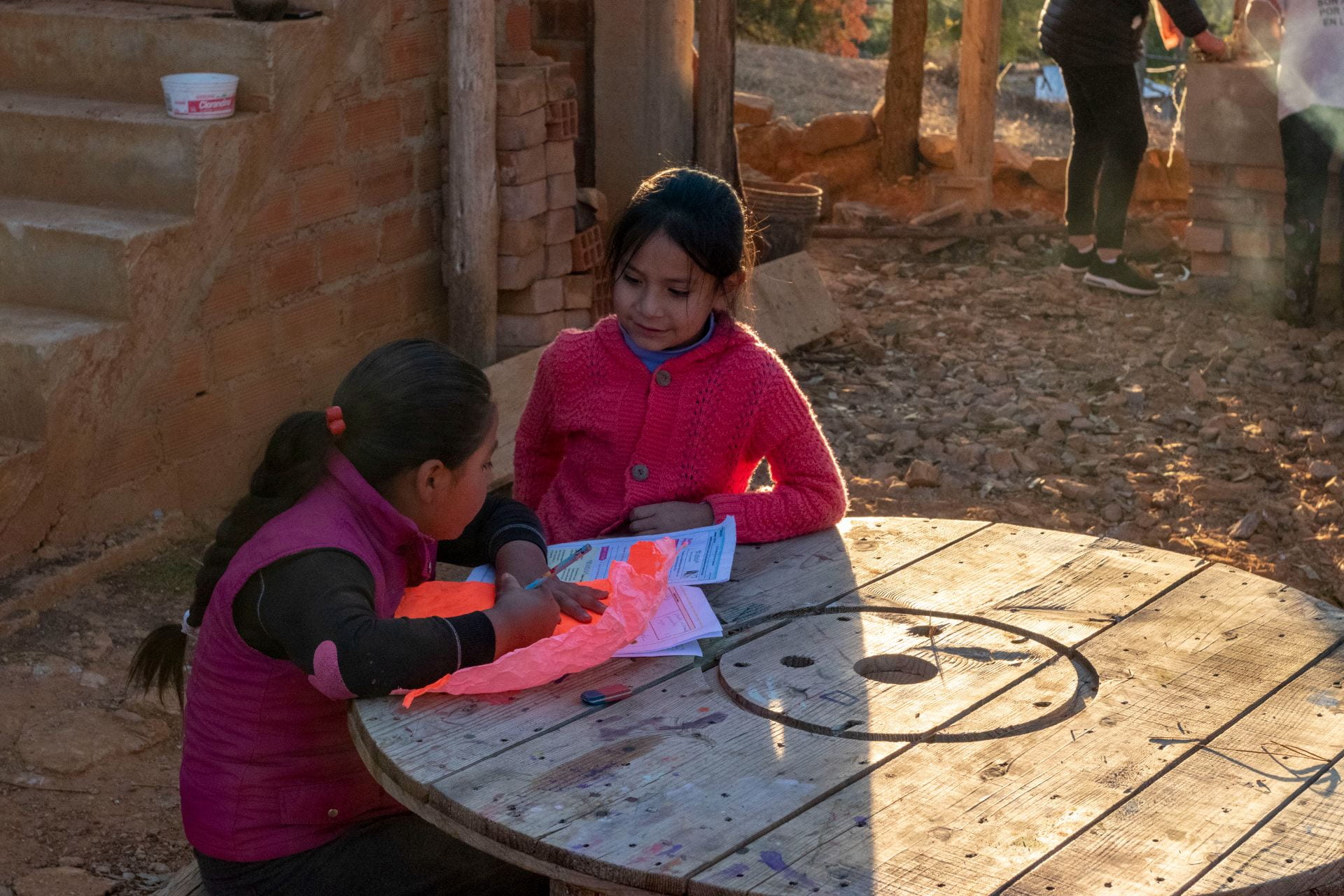
Elena, 61, is a retired teacher and psychologist who has decided to donate her time and build a schoolhouse called “Caminos del Corazón” or “Paths of the Heart” on her land on the outskirts of the city of Cajamarca, Peru. The schoolhouse sits in the smaller town of Shaullo Chico in the district of Baños del Inca in Cajamarca. I met Elena this year while doing archaeological work in Cajamarca, at the emblematic site Colina de Santa Apolonia located in the heart of the city. She enrolled as a student at the San Antonio de Cajamarca Technical School that trains local youth in heritage and archaeological issues associated with their regional history. In one of the classes I met Elena who wanted to learn more about archaeological work because her school was next to a pre-Hispanic site. She also wanted to incorporate that ancestral history into her classes and strengthen the local identity of her students.
“This little house is built on a heart. On the first of August, the day of Mamapacha (Mother Nature or Pachamama), we made a very beautiful little paguito (offering to the earth), a heart of flowers, and I feel that that heart that cements this house today flourishes because it fulfills its objective: the long path toward community education in this region,” says Elena, smiling.
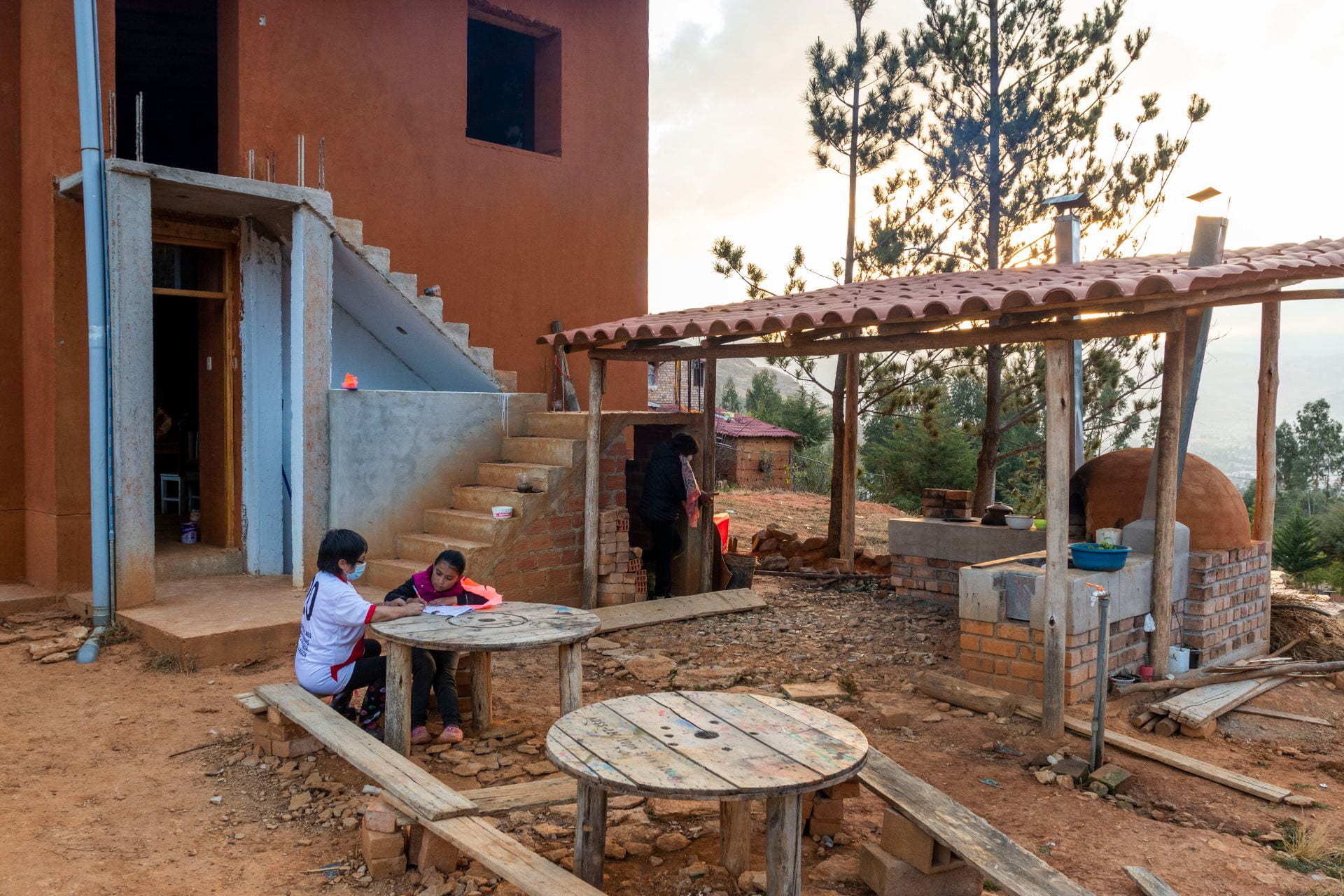
In this free school, Elena educates and shelters girls and boys together with their mothers, to whom she also offers psychological workshops and work alternatives to empower them. Currently the school serves an average of 25 boys and girls in different grades. They participate in different workshops: music, gardening, theater, monotype printmaking, repaying the land, and painting, among other things. She also works with a similar number of mothers in the community with the training program “Digital Literacy” that seeks to contribute to improving the learning conditions of their children and to empowering their autonomy through different work skills and opportunities. Mothers are offered baking, textile, and self-esteem and leadership workshops. Because most of them depend on their husbands, they hold jobs that allow them to generate their own resources.
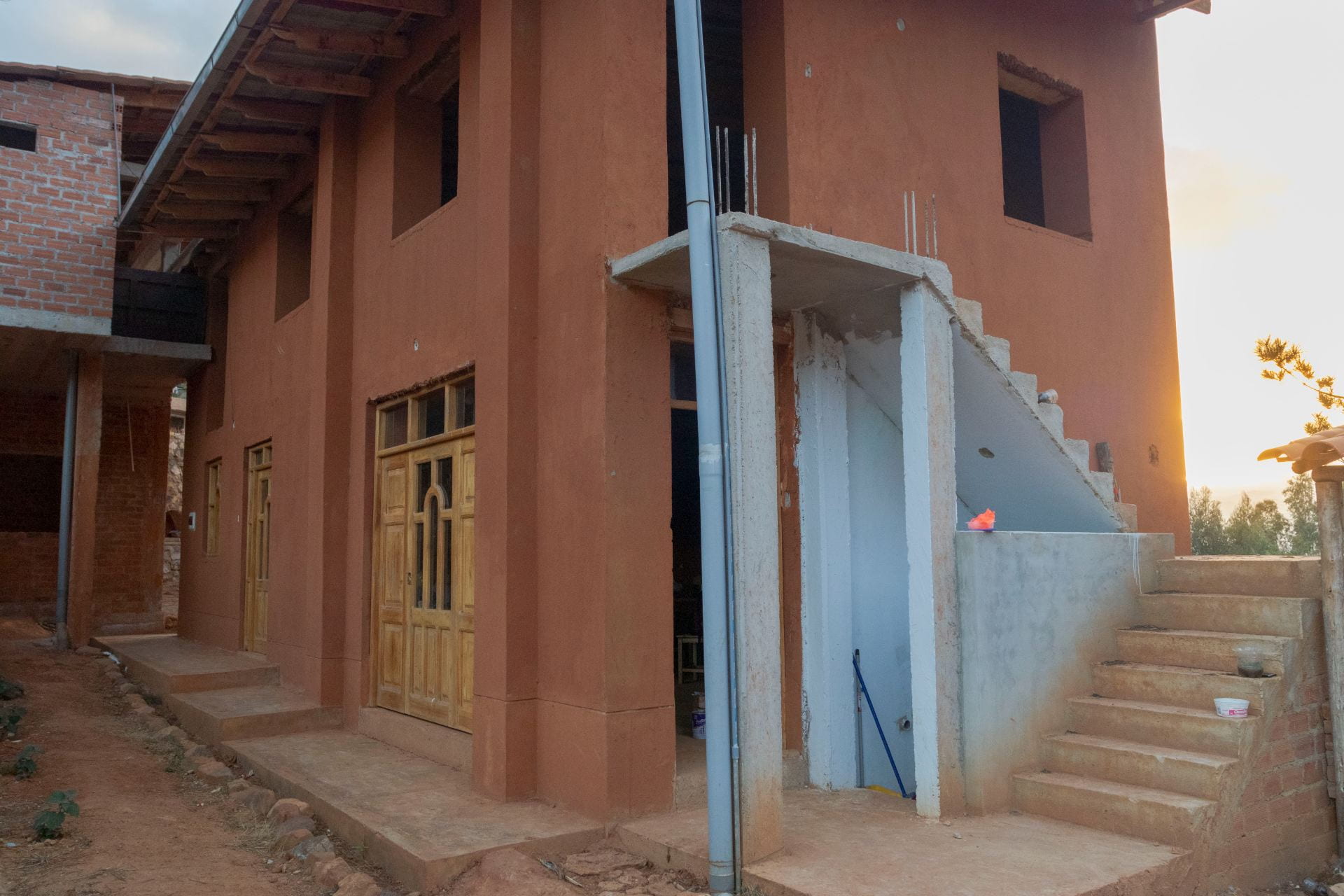
Elena has been gradually building this space from where she accompanies the mothers and women in the area, not only training them with workshops, but also providing them with a space of well-being and safety. Listening to the women validates their voices, specifically in a country with a high rate of femicides, gender violence and adolescent pregnancies like Peru. Cajamarca is the sixth region in pregnancies of children under 14 years of age, where to date 86% of complaints of physical, psychological or sexual abuse are made by women, according to the Regional Report on Citizen Security, based on data from the Cajamarca Police Front. Women also have the highest level of informal employment in this region.
Elena is a spiritual guide who connects Western psychology with the ancestral knowledge of the Apus giving them—giving us—peace and purpose. That long=awaited peace after the pandemic, the stress and the losses suffered. She teaches us that we all have a task and that no act is too simple or too small because everything adds up; it is transformed for the better. That is why it is not surprising that every day she receives more volunteers inspired by her work, with almost 28 institutions and people who teach a variety of subjects from paper craft workshops to talks against domestic violence. Elena shows that the more she gives someone, the more she receives in circular learning. Elena inspires. A few days ago, the school was flooded by mud and debris from a landslide caused by heavy rains. The parents of the students, volunteers, archaeologists, her colleagues and neighbors went to help her by making an ayni, a Quechua word for voluntary work of reciprocity and solidarity within the community. Precisely, being part of a community, of a family, is what the schoolhouse and its members make you feel.
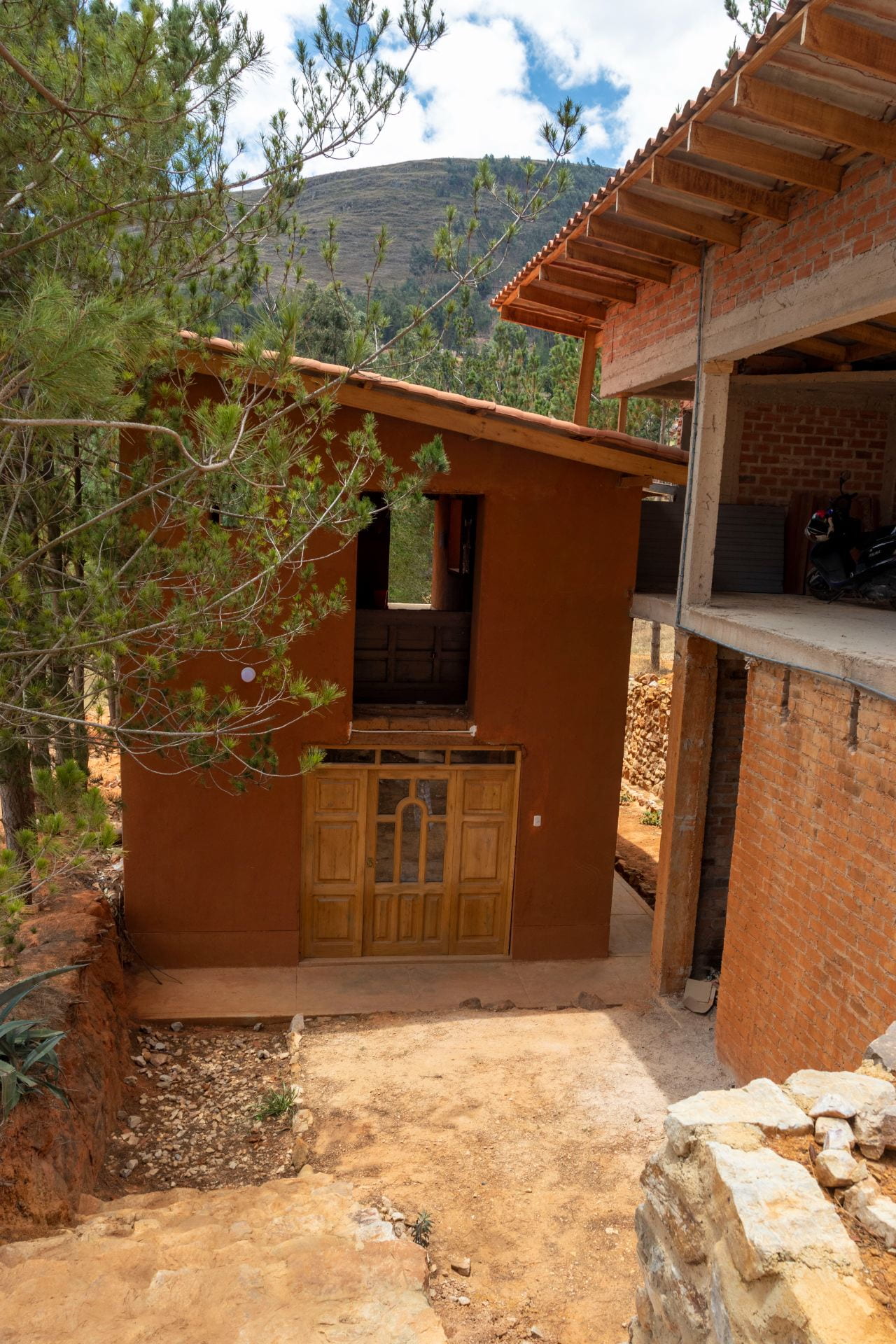
Wasisitu Shunqupa Ñanninkuna, the “Caminos del Corazón” schoolhouse, is a cultural and community education space that promotes diverse learning for girls, boys and teens of Shaullo Chico and reassesses the community’s knowledge to strengthen their identity from a perspective of integral ecology and popular education. However, Elena still lacks resources to finish school and to have materials to be able to teach her workshops for free. Together with a group of diverse volunteers from Cajamarca, a group of people, including myself, have wanted to help her make this dream come true, and we hope that you will be part of this.
A gofundme.com has been created, which you can access at the following link: https://gofund.me/18c17a84
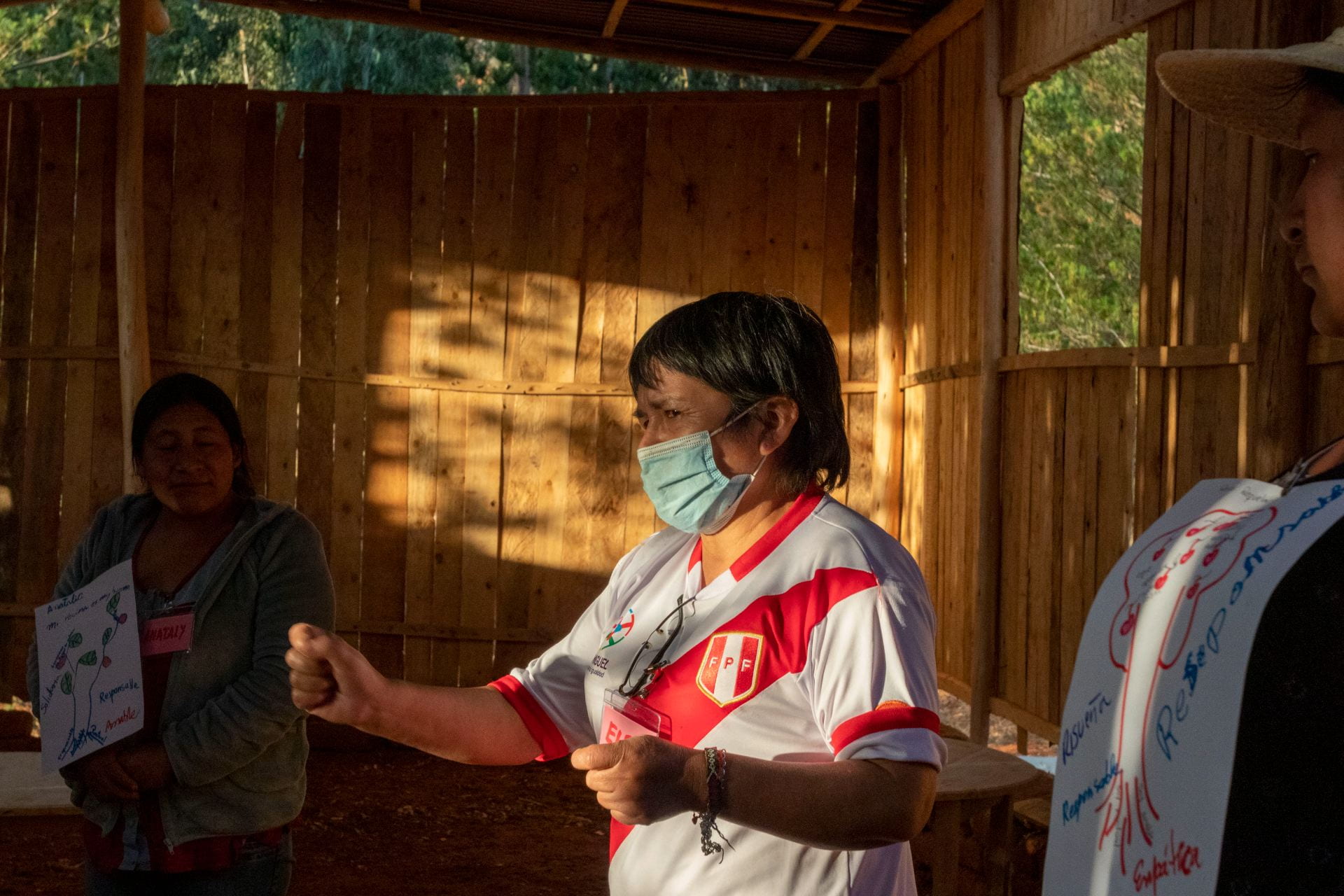
The pandemic has affected all of us, but even more those who were already vulnerable such as children and women from rural areas, in this case in the heart of the Andes in northern Peru. We, those of us who enjoy a certain securities such as a housing, food, and, above all, freedom and love, have the opportunity to give back and help create spaces for learning, tolerance and respect such as the little schoolhouse.
Elena’s dream is to create more of these schoolhouses. Elena is a heroine who has always fought against a system that was not created for women. She shows that a woman can change the world by educating and also planting flowers with a wide and transparent smile like her heart.
You can follow Elena’s work on her Facebook page: https://www.facebook.com/Wasisitu-Shunqupa-%C3%91anninkuna-104444965300497
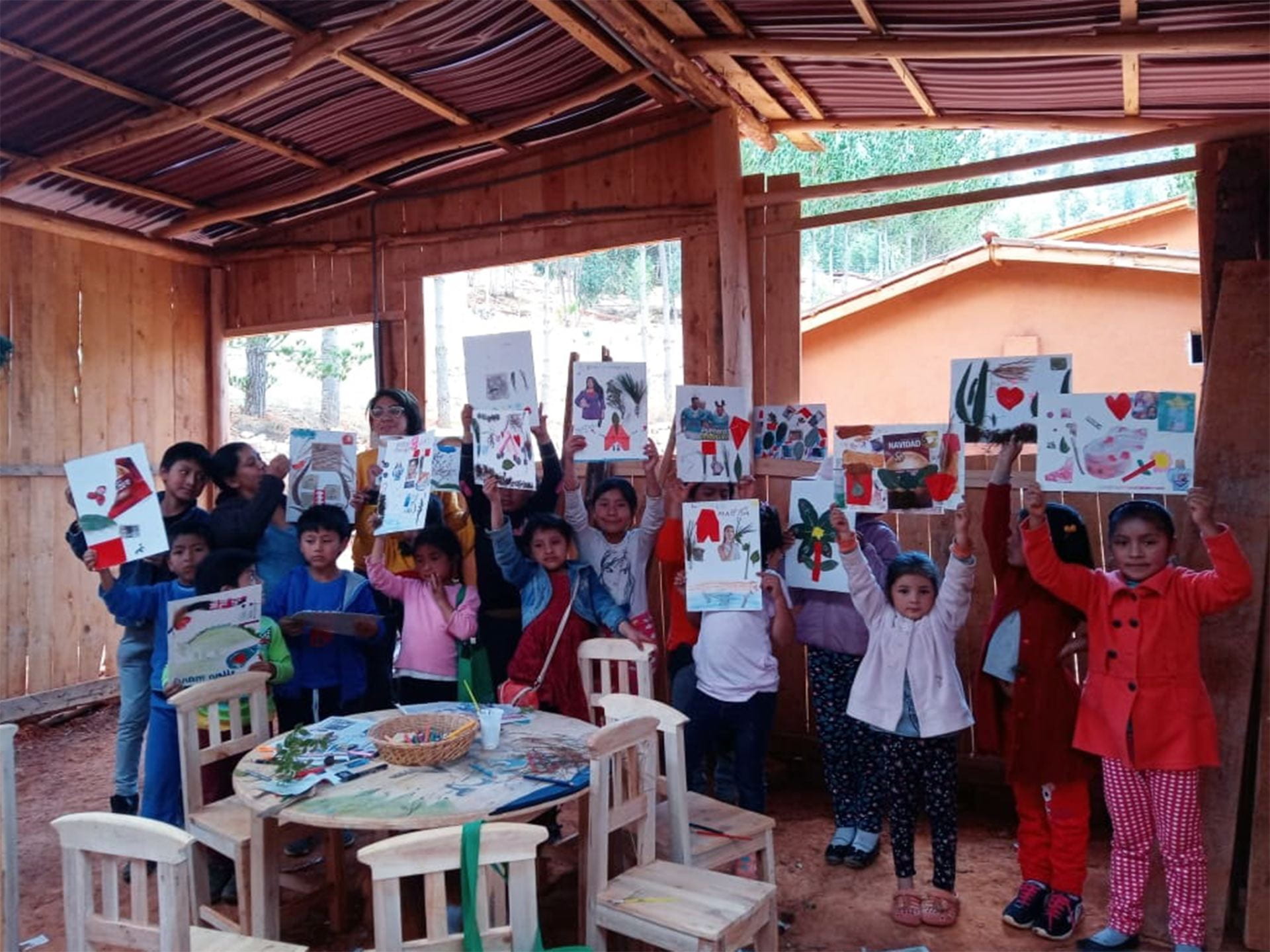
Sembrando Sueños
Una Escuela en los Andes
Por Solsiré Cusicanqui Marsano

El escritor uruguayo Eduardo Galeano decía: “mucha gente pequeña, en lugares pequeños, haciendo cosas pequeñas, puede cambiar el mundo”. Hace unos días llamé a Elena Sanchez Cueva, amiga y profesora retirada, quien me explicaba que ahora con la ayuda que recibe de más voluntarios en la escuela que dirige tiene algo de tiempo para cuidar las flores de su jardín. “Quiero que luzcan lindas para alegrar a los que nos visitan”. Mientras contaba emocionada que cada día llegan más alumnos con sus madres, y de igual manera, más jóvenes voluntarios de la ciudad de Cajamarca a apoyarla, no solo a dictar clases y talleres, sino también con la limpieza de la casa, y a cantar y bailar al sonido de las coplas de los carnavales cajamarquinos.

Elena, de 61 años, es profesora y psicóloga jubilada que ha decidido donar su tiempo y construir una casita-escuela llamada “Caminos del Corazón” en su terreno a las afueras de la ciudad de Cajamarca. La casita-escuela se encuentra en el poblado menor de Shaullo Chico en el distrito de Baños del Inca en Cajamarca, Perú. Conocí a Elena este año mientras realizaba los trabajos arqueológicos en Cajamarca, en el sitio emblemático de la Colina Santa Apolonia ubicado en el corazón de la ciudad. Ella se enlisto como estudiante de la Escuela Taller San Antonio que capacita a jóvenes locales en temas patrimoniales y arqueológicos asociados a su historia regional. En una de las clases conocí a Elena quien quería aprender más del trabajo arqueológico porque su escuela se encontraba al lado de un sitio prehispánico. Ella quería incorporar también esa historia ancestral a sus clases, y fortalecer la identidad local de sus alumnos.
“Esta casita está construida sobre un corazón. El primero de agosto, día de la Mamapacha (naturaleza) hicimos un paguito (ofrenda a la tierra) muy hermoso, un corazón de flores, y siento que ese corazón que cimenta esta casa hoy florece porque cumple su objetivo: ese largo caminar de la educación comunitaria en los propios territorios” dice Elena, sonriente.

En esta escuela gratuita Elena educa y alberga a niñas y niños junto con sus madres, a quienes además les ofrece talleres psicológicos y alternativas de trabajo para empoderarlas. Actualmente atienden un promedio de 25 niños y niñas de distintos grados académicos. Ellos participan en diferentes talleres: música, siembra de plantas, teatro, monotipia, pago a la tierra, pintura, entre otros. También trabaja con un número similar de madres de la comunidad con el programa de formación “Alfabetización digital” que busca contribuir a mejorar las condiciones de aprendizajes de sus hijos y empoderar su autonomía a través de diferentes emprendimientos. A las madres se les ofrece talleres de panadería, textilería, autoestima y liderazgo porque en su mayoría dependen de los esposos, no tienen un trabajo que les permita generar recursos propios.

Elena viene construyendo poco a poco este espacio desde donde acompaña a las madres y mujeres de la zona, no solo capacitándolas con talleres, sino también brindándoles un espacio de bienestar y seguridad. Las escucha, valida sus voces en una región con alto índice de feminicidios, violencia de género y embarazos adolescentes como es el Perú. Cajamarca es la sexta región en embarazos de menores de 14 años, donde hasta la fecha 86% de las denuncias por maltrato físico, psicológico o sexual son hechos por mujeres y donde las mujeres mantienen el nivel más alto de empleos informales. Elena es una guía espiritual que conecta la psicología occidental con los saberes ancestrales de los Apus dándoles – dándonos-, paz y propósito. Aquella paz esperada luego de la pandemia, del estrés, de las pérdidas sufridas. Ella nos enseña que todos tenemos una tarea y que ningún acto es simple o pequeño porque todo suma, se transforma para bien. Por eso no es sorpresa que cada día reciba más voluntarios inspirados por su trabajo, casi 28 instituciones y personas que enseñan desde talleres en cartulina hasta charlas contra el maltrato y abuso en el hogar.
Elena enseña que mientras más da uno, más recibe en un aprendizaje circular. Elena inspira. Hace unos días la escuela fue inundada por agua y barro producido por las fuertes lluvias que azotaron la zona. Los padres de los alumnos, voluntarios, arqueólogos, sus colegas y vecinos fueron a ayudarla haciendo un ayni, palabra quechua para denominar el trabajo voluntario de reciprocidad y solidaridad entre la comunidad. Justamente, ser parte de una comunidad, de una familia, es lo que la escuela-casita y sus miembros te hacen sentir.
Wasisitu Shunqupa Ñanninkuna – Casita “Caminos del Corazón”, es un espacio cultural y de educación comunitaria, que promueve los diversos aprendizajes de las niñas, niños y adolescentes de Shaullo Chico, revalorando los saberes de la comunidad para afianzar su identidad desde un enfoque de ecología integral y educación popular. Sin embargo, aún le faltan recursos para terminar la escuela y tener materiales para poder impartir sus talleres gratuitamente. Junto con un grupo de diversos voluntarios de Cajamarca hemos querido ayudarla a realizar este sueño y esperamos que tú seas parte de este.
Se ha creado un gofundme.com al cual puedes acceder en el siguiente link https://gofund.me/18c17a84

La pandemia nos ha afectado a todos, pero aún más a quienes ya eran vulnerables como niños y mujeres de zonas rurales, en este caso ubicados en el corazón de los Andes al norte del Perú. Para quienes gozamos de cierta seguridad como una casa, alimentación y sobre todo libertad y amor tenemos la oportunidad de devolver y ayudar a crear espacios de aprendizaje, tolerancia y respeto como la casita-escuela:
El sueño de Elena es crear más de estas casa-escuela. Elena es una heroína que ha luchado siempre contra un sistema que no fue creado para las mujeres. Ella demuestra que una mujer puede cambiar el mundo educando y también sembrando flores con una sonrisa amplia y transparente como su corazón.
Pueden seguir el trabajo de Elena por su página en Facebook https://www.facebook.com/Wasisitu-Shunqupa-%C3%91anninkuna-104444965300497

More Student Views
Puerto Rico’s Act 60: More Than Economics, a Human Rights Issue
For my senior research analysis project, I chose to examine Puerto Rico’s Act 60 policy. To gain a personal perspective on its impact, I interviewed Nyia Chusan, a Puerto Rican graduate student at Virginia Commonwealth University, who shared her experiences of how gentrification has changed her island:
Beyond Presence: Building Kichwa Community at Harvard
I recently had the pleasure of reuniting with Américo Mendoza-Mori, current assistant professor at St Olaf’s College, at my current institution and alma mater, the University of Wisconsin-Madison. Professor Mendoza-Mori, who was invited to Madison by the university’s Latin American, Caribbean, and Iberian Studies Program, shared how Indigenous languages and knowledges can reshape the ways universities teach, research and engage with communities, both local and abroad.
Of Salamanders and Spirits
I probably could’ve chosen a better day to visit the CIIDIR-IPN for the first time. It was the last week of September and the city had come to a full stop. Citizens barricaded the streets with tarps and plastic chairs, and protest banners covered the walls of the Edificio de Gobierno del Estado de Oaxaca, all demanding fair wages for the state’s educators. It was my first (but certainly not my last) encounter with the fierce political activism that Oaxaca is known for.




